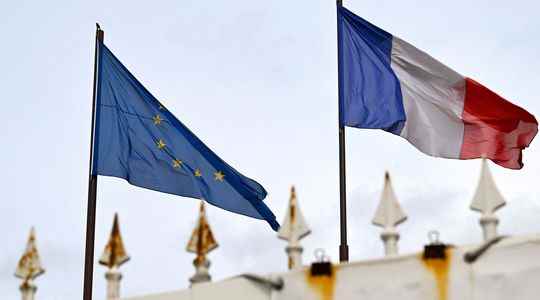If the decision turns out to be essentially symbolic, it sends the wrong signal for the diplomatic channel, especially in times of open conflict. Russia announced, Wednesday, May 18, to expel dozens of French, Italian and Spanish diplomats in retaliation for such measures decided by Western countries, against Russian diplomats, in the wake of the offensive in Ukraine, launched on February 24. This Thursday, Moscow also gave notice of the expulsion of five Portuguese diplomats.
A total of 34 French diplomats are to leave Russia within two weeks. 27 Spaniards – “collaborators of the Spanish Embassy in Moscow and the General Consulate of Spain in Saint Petersburg” – have seven days to leave the country; 24 Italian diplomats have eight days to leave, Russian diplomacy said in separate press releases.
Denounced by the European capitals, these expulsions are not based “on any legitimate basis”, estimated the French Ministry of Foreign Affairs. The Quai d’Orsay also explains that Paris had expelled, a few weeks ago, “several dozen Russian agents” suspected of being spies. “The work of the diplomats and staff of our embassy in Russia is, conversely, fully within the framework of the Vienna Convention on Diplomatic and Consular Relations”, he underlined.
But what is the real use of these expulsions of diplomats in the context of a war? “It is rather a way of prolonging the conflict,” replies Anne Gadel, member of the observatory on North Africa and the Middle East at the Jean-Jaurès Foundation. “These expulsions are not of much use in themselves, but are strong symbolic measures. And in times of tension, symbols are always important”, adds Didier Billion, deputy director of the Institute for International and Strategic Relations (IRIS ), interviewed by L’Express.
A negative signal
It is therefore above all a negative signal sent by Moscow to the Europeans, with whom negotiations seem to have stalled concerning the fate of Ukraine. The diplomatic channel is undermined, even if it is not interrupted. “It is clear that this will not change the nature of relations between the countries concerned, but the role of diplomats remains essential to maintain the dialogue with Russia. Even if they do not take the decisions, they work in a preparatory way and feed the president. There, we deprive ourselves of channels of dialogue”, develops Didier Billion.
These measures can also be interpreted as a sign of an escalation of the conflict. Especially in the face of a leader, Vladimir Putin, who makes his decisions alone. “Threats to nuclear weapons by senior Russian leaders, such as Sergei Lavrov or Putin himself, are very worrying,” warns the specialist in international relations. If there will “necessarily be a compromise sooner or later, because the war cannot last for years, the difficulty lies in the posture in which the Russian leader has locked himself: when he does not achieve his objectives or when he suffers a defeat on the ground, we are witnessing a verbal and military escalation. He risks radicalizing things even more”, he abounds. In this context, the expulsion of diplomats “is worrying” because “in this situation, everything can get worse”.
Continue the dialogue
Unlike some observers who criticize Emmanuel Macron’s repeated telephone conversations with Vladimir Putin, which have so far not changed the course of the war, the two specialists are supporters of dialogue with Russia. “France is thus putting itself in the position of mediator even if it does not obtain a result, and there are not many countries which do it”, notes Didier Billion.
According to him, there is still a large margin of possibilities before the total breakdown of the dialogue with the Kremlin. The ambassadors have not been expelled and the embassies remain open in the countries concerned, thus maintaining a diplomatic presence – which has not been the case in other conflicts. “The worst mistake would be to close the embassy, judges the leader of IFRI. We did it in Syria. It was a political mistake: we deprived ourselves of a dialogue with Bashar al-Assad, everything despicable as he is.”
France and Europe are not at a total diplomatic break with Russia. Moreover, several past situations have already led to the expulsion of diplomats. For example in 1983, when François Mitterrand dismissed 47 Russians, mainly diplomats, accused of being agents of the KGB, the former Soviet intelligence service. These expulsions are generally “crossed”, explains Didier Billion. That is to say that a reciprocal response is always provided by the target country. And that had not prevented the maintenance of relations between Paris and Moscow.
